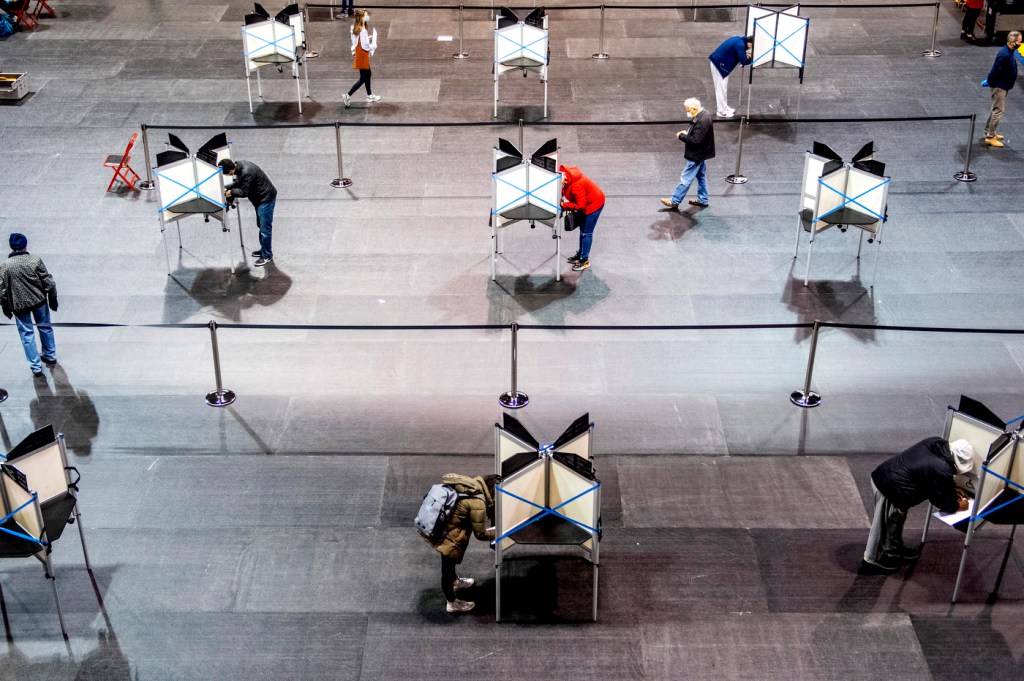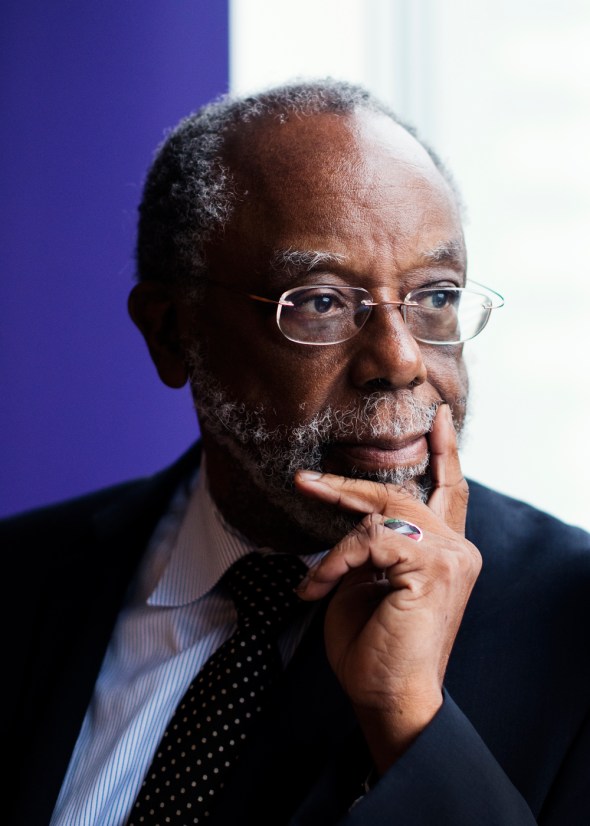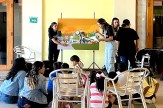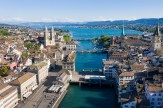Whether Biden or Trump wins, it’s clear the US is divided. It’s time to turn to local communities for solutions.

With razor-thin margins in crucial swing states, the race for president was too close to call on Tuesday. But one thing was clear early on, said Ted Landsmark, distinguished professor of public policy and urban affairs at Northeastern—the U.S. is as politically polarized as ever, and it’ll take more than a national election to bring people back together.
“At this point, the election reaffirms how divided the American electorate is,” Landsmark said late Tuesday night. “It emphasizes that there’s a great deal of healing that will have to take place, and whatever the outcome, that healing appears unlikely to be initiated in Washington.”

Ted Landsmark, Distinguished Professor of Public Policy and Urban Affairs. Photo by Adam Glanzman/Northeastern University
The COVID-19 pandemic changed the contours of the hard-fought race between President Donald Trump and former Vice President Joe Biden—from the way people voted to the issues that were important to them. A wave of early, mail-in, and absentee voting skewed the return count on election night, which made it impossible to determine a clear winner by Wednesday.
“We’re not going to know much of a final result for another couple days,” said Landsmark, who is also the director of the Kitty and Michael Dukakis Center for Urban and Regional Policy at Northeastern. “As the numbers come in, it’s increasingly clear that there will be litigation in some jurisdictions, and it certainly appears at this moment to be unlikely that either party will concede at the national level.”
Landsmark said he’ll be keeping an eye on the courts this week, as well as city and regional planning and policies, and the leadership of local non-profit organizations.
In that vein, he’s hosting Wednesday’s Myra Kraft Open Classroom with students, faculty, and staff from Northeastern’s campuses in Boston, Seattle, and Charlotte, North Carolina to “debrief, share observations, and plan further what the university and individuals who are members of our community can do to address a range of issues.”
Beyond the election, the pandemic has dramatically changed people’s lives, and Landsmark said that the recovery is unlikely to come from gridlocked and highly polarized federal politics.
It’s more likely, he said, that local communities will band together to help people facing evictions find housing; help people who lost their jobs find new ones; and support people suffering from the disease.
“Our healing will take place community by community, city and region by city and region,” Landsmark said. “The kinds of solutions we’re likely to see over the next 18 to 36 months will be emerging, essentially, from local views of what health and economic recoveries ought to be, and a continuing reliance on local resources to address those challenges.”
Local communities have already proven to be resilient, Landsmark said, offering an example from Massachusetts: Postal workers, healthcare workers, and public service employees have continued to do their jobs day in and day out, despite facing considerable challenges on a national level.
“We’ve seen a level of commitment to serving everyone without regard to political affiliation from all these public service workers,” he said. “They’re our friends and neighbors.”
For media inquiries, please contact media@northeastern.edu.





